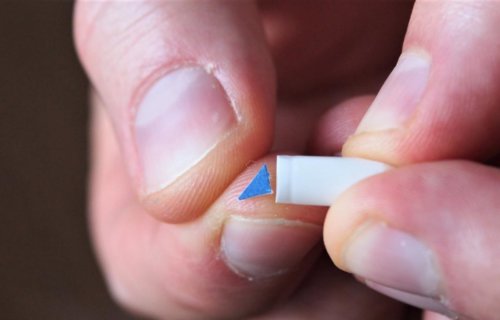CHICAGO — In recent years, some have claimed that “microdosing” LSD offers therapeutic benefits, promoting a better mood and clearer cognition. According to new research, however, there is little scientific evidence to support such far out claims. The term micro-dosing refers to taking very tiny amounts of a drug instead of the full amount.
Scientists from the University of Chicago Medical Center clarify that their latest report doesn’t necessarily mean microdosing offers no benefits whatsoever – they just haven’t found any yet. Moreover, this study does confirm that microdosing LSD, at the very least, appears to be safe. In a broader sense, researchers believe their work shows just how integral scientific research is when it comes to testing and verifying therapeutic claims made in reference to any number of recreational drugs.
“These drugs are already being used out in the world, and it’s important for us to test them under controlled conditions, ensure their safety and see whether there’s some validity to the benefits people claim,” says lead study author Harriet de Wit, PhD, Professor of Psychiatry and Behavioral Neuroscience at UChicago, in a media release. “That’s something that has been missing from the conversation.”
Micro-doses are about one-tenth the size of a regular LSD dose
Dr. de Wit’s lab has been studying the effects of recreational drugs within a controlled setting for quite some time. For this specific project, the lab team analyzed the effects of multiple (four) repeated mini-LSD doses. Researchers administered each dose under controlled lab conditions every three to four days. One sub-group of the participants received 13 micrograms of LSD, while a second sub-section received 26 micrograms. A third group took a placebo instead of psychedelics.
For reference on just how tiny those doses are, a typical LSD dose used to “trip” (or have a psychedelic episode) is around 100 to 200 micrograms. Scientists chose LSD for this study because it is the most common substance people microdose by far.
Each lab microdosing session lasted five hours, and participants also attended a drug-free follow-up meeting three to four days after their last dose of LSD. Importantly, the group did not know what drug they were taking. In fact, the subjects didn’t even know the research was focusing on microdosing at all.
“We removed any expectations that this was a psychedelic drug,” Dr. de Wit explains. “Because in the real world, people’s expectations can strongly influence their responses.”
No improvements from small doses
During both the micro-dosing sessions and the sober follow-up meetings, the group completed a series of cognitive and emotional tasks intended to gauge mood and cognition. Some subjects who took the highest possible dose reported feeling a slight “high,” but nothing too overwhelming.
All in all, the microdoses didn’t seem to improve mood at all, nor did cognitive scores improve at any point during the study. The researchers say their own findings surprised them. “Because so many people claim to have experienced benefits from microdosing, we expected to document some kind of beneficial effect under laboratory conditions,” Dr. de Wit comments.
Previous studies theorize LSD can improve mood. LSD works through serotonin receptors, which is also where traditional antidepressants act.
“We can’t say necessarily that microdosing doesn’t work,” Dr. de Wit notes. “All we can say is that, under these controlled circumstances, with this kind of participant, these doses, and these intervals, we didn’t see a robust effect.”
Study authors mention that most people who micro-dose LSD in real-world settings expect tangible benefits. Such expectations may be contributing to a placebo effect. “It is possible that these expectations contribute to the apparent benefits, or they may interact with the pharmacological effect of the drug,” Dr. de Wit adds.
LSD continues to appear safe for use
The study did add further confirmation that LSD micro-dosing is safe. Earlier research had already found that LSD is not toxic, even in high doses. For this research, participants had their heart rate, blood pressure, impairment, and other vital signs measured – but no negative effects were documented while microdosing.
Furthermore, study participants actually appeared to build a tolerance to LSD quickly. The strongest “highs” were reported during the first sessions, with each subsequent session providing diminishing returns. Study authors explain this is a positive, because it suggests LSD does not stay in the body for very long or accumulate.
“There are a lot of companies getting into the drug business, either with psychedelic drugs, or drugs like cannabidiol,” Dr. de Wit concludes. “And really there’s not very much empirical support to back up their claims. So, I think we have a responsibility to investigate and validate the claims.”
The study is published in the journal Addiction Biology.
